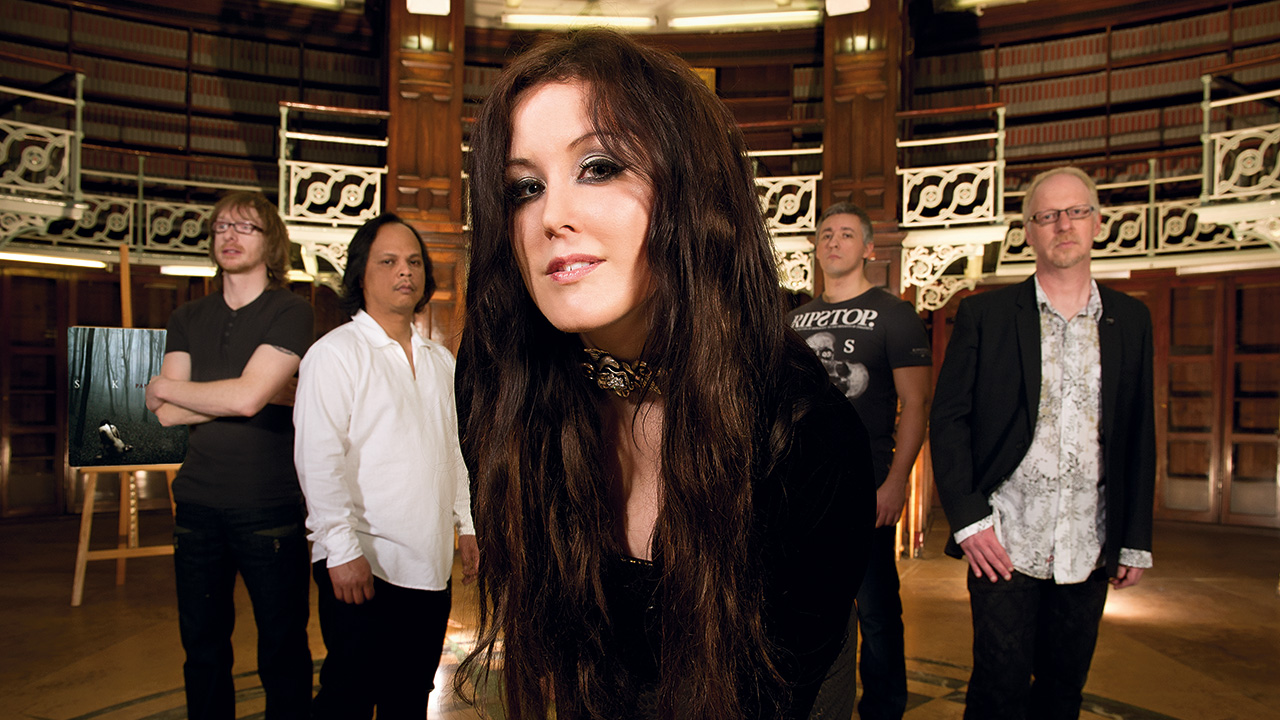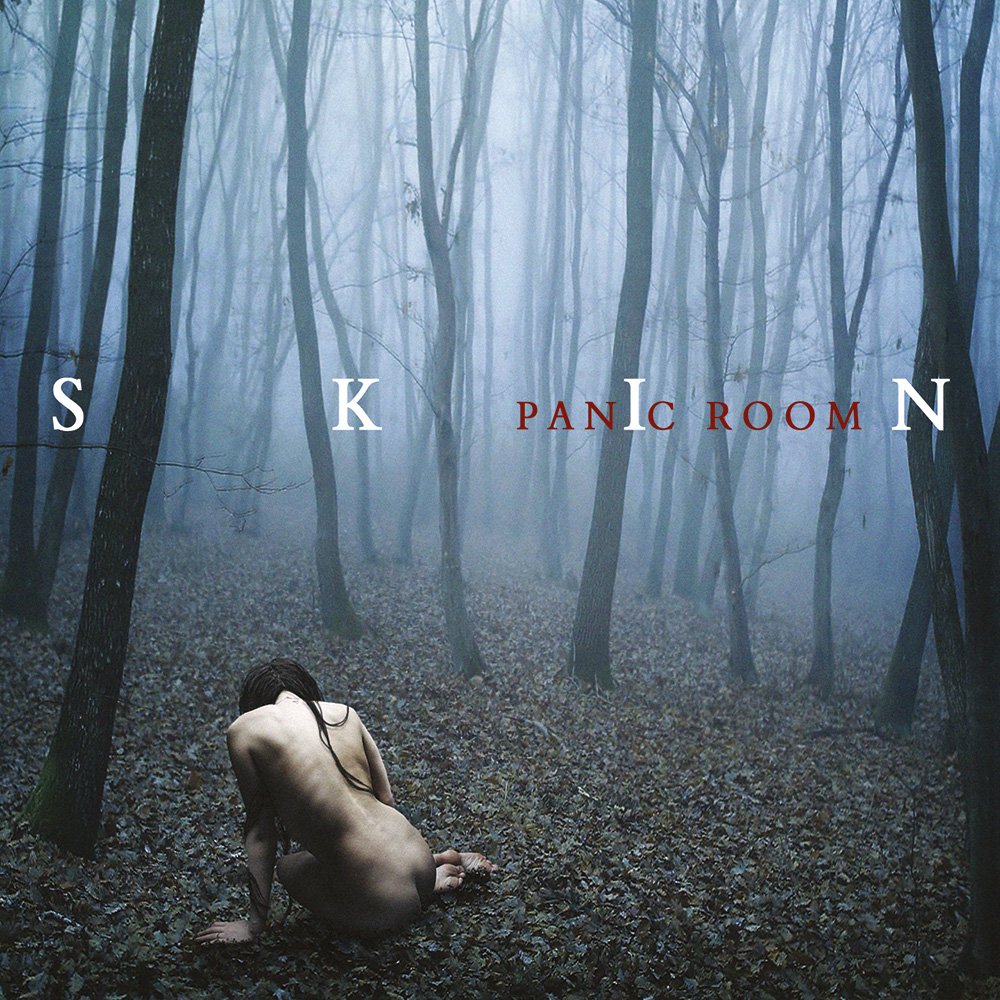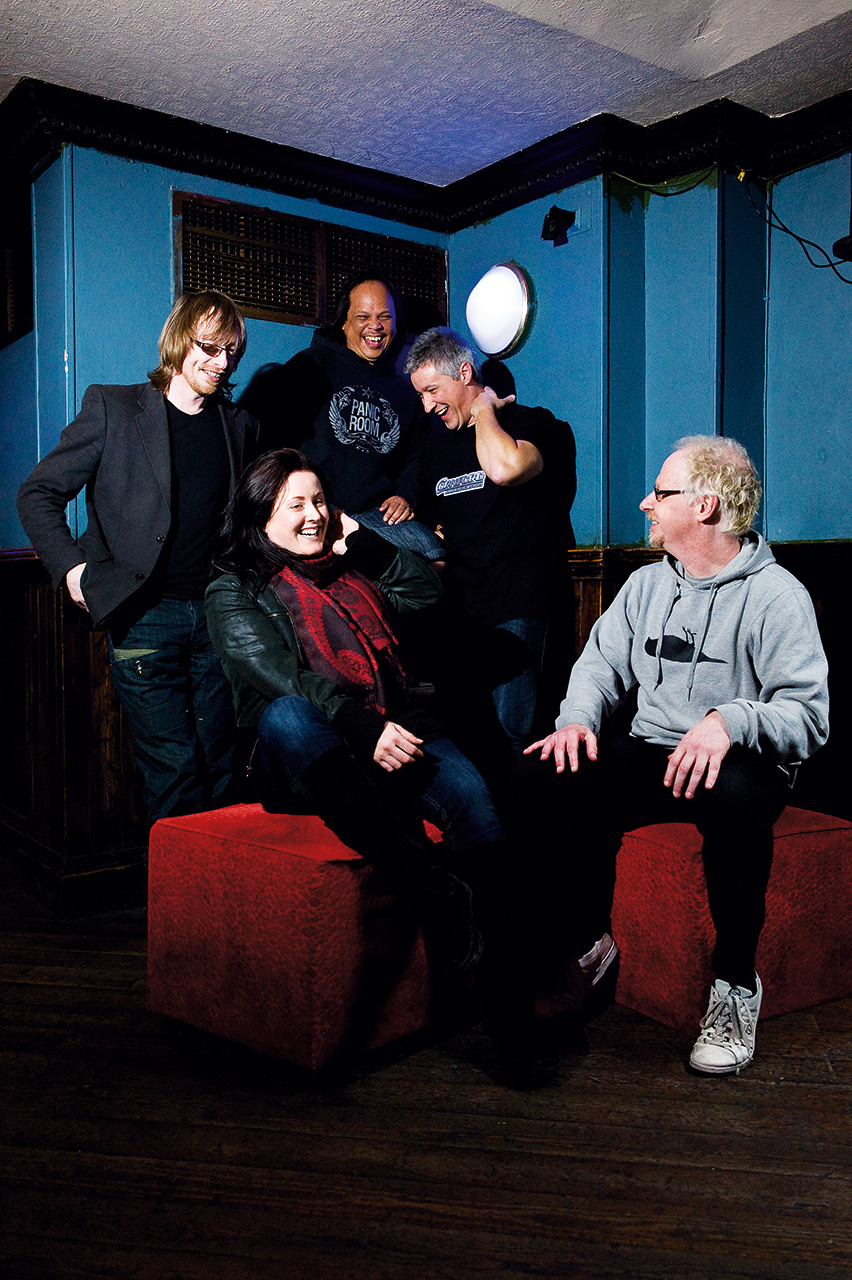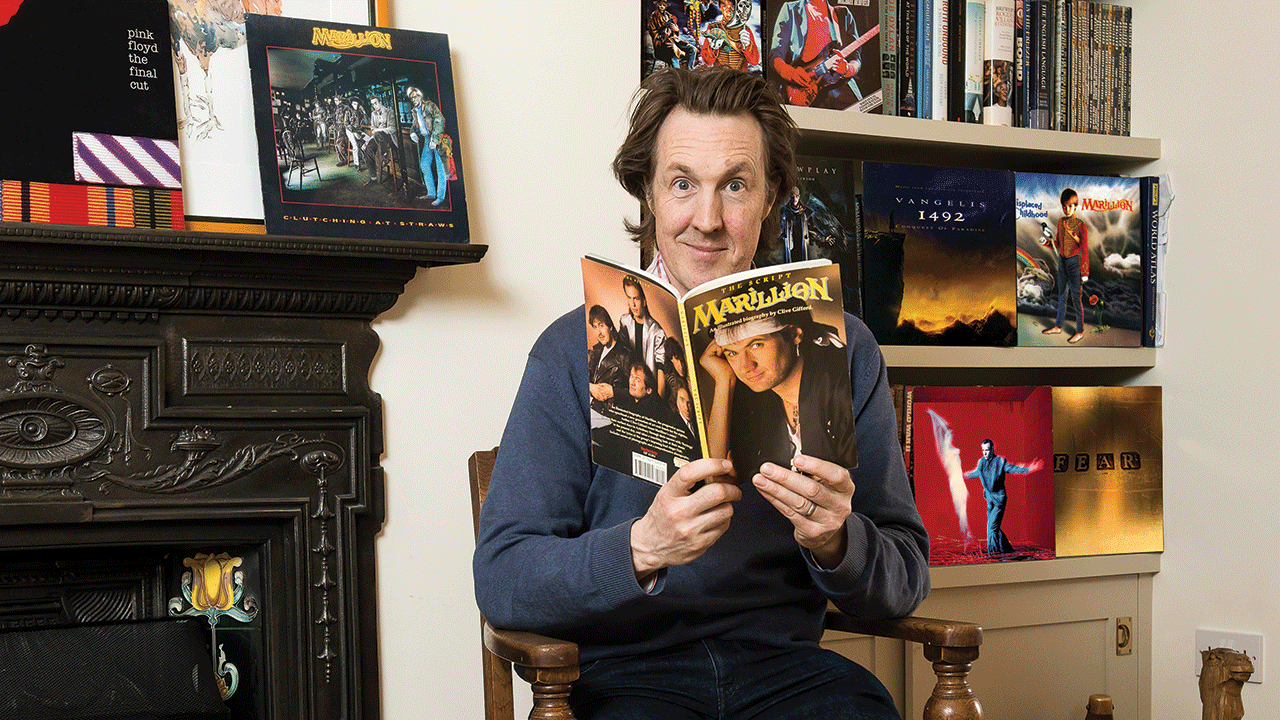How Panic Room made their "dark and personal" third album SKIN
In 2012 Anglo-Welsh prog quintet Panic Room signed to Esoteric Records and released third album SKIN

These days the word ‘genre’ can seem irrelevent and even restrictive. Even more so in an era where bands are pushing boundaries further than ever before. Fitting neatly into a particular musical genre seems uncreative, and only benefits record companies looking for a quick and easy label. The joy of a band such as Panic Room is that in order to really discover their sound, you actually have to listen.
Nevertheless, there is a growing affinity for nostalgia within the prog rock community, and, while Panic Room aren’t progressive in the traditional sense, their music is laced with progressive undertones, while sounding distinctly modern.
“I do have a problem with music that’s based on nostalgia,” says keyboard player Jonathan Edwards. “If you’re feeling nostalgic, why don’t you just go back and play the albums you loved from the 70s rather than just recreate it?”
The 70s progressive sound, despite having its place in rock history, is not something that appeals to lead vocalist Anne-Marie Helder. “I don’t like a lot of notes just for the sake of it,” she chuckles. “I think certain areas of prog can be about the cleverness of it, and while that does impress me it doesn’t turn me on. I like my music to hit me in the stomach and have a fire to it.”

This mindset has led to Panic Room being difficult to compartmentalise, but are they prog? Not according to the band themselves, with many of their influences coming from outside the progressive realm. Panic Room’s sound is an intriguing fusion of jazz, pop, electronic and progressive elements. This eclectic blend is, in part, down to the band not excluding any influences, however unusual.
“I think what we try and do is make something new out of all the influences we have, rather than just one particular type,” states Edwards. “There might be progressive elements in some of the things we do, but we’re just as likely to use a Metallica-type riff as well as a bossa nova rhythm. We just put things together and they come out sounding like Panic Room.”
With so many innovative bands coming before them, Helder admits that always striving to sound ‘different’ can be frustrating.
Sign up below to get the latest from Prog, plus exclusive special offers, direct to your inbox!
“Sometimes you’ll be banging your head against a brick wall because you’ll be thinking that there’s no idea or chord sequence that hasn’t been done before,” she laughs. “I don’t like to think there’s nothing new to be created however, and we do try and bring something new with our music even if it may sound like another band.”
Panic Room came together around 2005, with a line-up of Helder, Edwards, guitarist Paul Davies, drummer Gavin Griffiths and bassist Alun Vaughan. They released two albums, 2008’s Visionary Position and 2010’s Satellite, on their own label.
Now the band – with Vaughan replaced by bassist Yatim Halimi – have recently signed with Esoteric Antenna and are excited about the prospect of making more progress with new album SKIN.
“We just got to the point where it was difficult to push forwards,” Edwards explains. “So signing with Esoteric came at exactly the right time for us.” As any band or artist will confirm, handing over music to a record company is not an easy decision. Panic Room have been crafting very personal songs, with experiences from the band members’ own lives interwoven into each song. So it was important that their relationship with Esoteric was equally as personal.
“Anyone we work with we like to build a relationship with,” explains Edwards. “So it was important that when we trusted someone else to look after the music it was somebody we liked, somebody who we felt understood what we were trying
to achieve.”
It’s a sentiment Helder agrees with. ”What’s great about Esoteric is that they have all the resources of a bigger label, but they’re small enough to be personal with you,” she confirms. “It feels like you’re under the wing of a big company, but it’s also like having an extension to your family.”
Anyone who has followed the band since their Visionary Position debut will tell you that each project has been a step up from its predecessor. But despite its achievements Visionary Position felt incomplete; as if they hadn’t quite found their calling. When it came to recording the follow-up Satellite, Panic Room seemed to have found their footing as a band.

”By the time we’d got to Satellite we’d played live an awful lot,” says Edwards. “So when we got into the studio we knew what we were doing, so we could record the album live.”
Consequently, Satellite has a character of its own that reflects the personality of band. “It’s quite easy for me sometimes to think of Satellite as the first album and SKIN as our follow-up album,” says Helder. ”That’s not taking anything away from Visionary Position, but it was really a coming together of the band and we did try out a lot of ideas.”
As well as sounding unique, Satellite was also written with the audience in mind, as a major aspect of Panic Room’s appeal is their energetic live shows. “You don’t wanna be on stage playing self-congratulatory music, you have to get the audience going as well,” explains Helder. “Visionary Position was really a self-indulgent album, whereas Satellite was the album where we found our sound.”
There is no such thing as a ‘typical’ Panic Room show, with a great deal of impulsive banter with the audience and the antics of a rather unpredictable bassist. “Yes, it is quite hard to get him to keep his clothes on,” laughs Helder. “Either things come off or like at the Christmas show he came onstage for the encore dressed in a Superman romper suit.”
Whether you go for the music or to see their bassist undress, Panic Room definitely don’t take themselves too seriously. “I think if you get too precious about things and try to be too cool it can become very sterile,” insists Edwards. “It’s important to keep some spontaneity, as much for your sanity as well as the audience’s. Performing live is about the audience as well as the band, and it’s a good night for us if we feel we’re connecting with them.”
The band do wear their heart on their collective sleeve, and the vast majority of SKIN tells stories of the various trials and tribulations the group have gone through in recent months. The resulting sound is more melancholic than we’re used to.
“I think it’s a darker album than Satellite,” acknowledges Edwards. “Mainly because of things Anne and other members of the band were going through. Unless your music is personal and comes from you as a person, how can you expect anyone listening to it to identify with it?”
SKIN comes from a very personal place and, as Anne-Marie explains, made the writing process quite a challenge emotionally. “I spent most of January hibernating upstairs away from friends and family just getting to grips with the ideas for SKIN,” she recalls. “There are quite a few songs that are emotional, and although I didn’t want the album to be down in vibe, it’s important to capture what the band were going through.”
SKIN is an album the band made for themselves; a sort of creative therapy for their challenging personal lives. There are songs on the album that contain themes that their audience will have experienced, and those songs have helped the band pull through.
“In the last couple of years we’ve lost people in terms of death and relationships, and we’ve been through a lot,” Helder reveals. “We’re like brothers and sisters, so I wanted SKIN to be a catharsis for the band.”
But Anne-Marie is keen to assure anyone worried that SKIN will make them more depressed than spending five minutes with Morrissey, that it’s not all doom and gloom. “Saying that, we have plenty fire and groove in there, like the song Freefalling which was inspired by doing a parachute jump.”
SKIN is an emotionally driven album that wears its soul for all to see, and is unashamed of doing so. But, when all is said and done, Panic Room create the music they love for themselves.
“If we’ve done our best, and we’re proud of it and we know that this is the best thing we can create right now then we’re doing our jobs,” she concludes. “When we see people at gigs singing and crying along to our songs, it does blow me away. It does make me scared to do the next one!"
This article originally appeared in issue 27 of Prog Magazine.
